Table of Contents
Introduction
“You are what you eat” applies not just to humans but also to our beloved furry friends. When it comes to our Golden Retrievers, providing them with proper nutrition is essential for their overall health and well-being. As responsible pet owners, it is our duty to understand their dietary needs and ensure they receive the right balance of nutrients. In this article, we will delve into the world of Golden Retriever nutrition and discuss the essential guidelines to keep your furry companion healthy and happy.
The Importance of a Balanced Diet
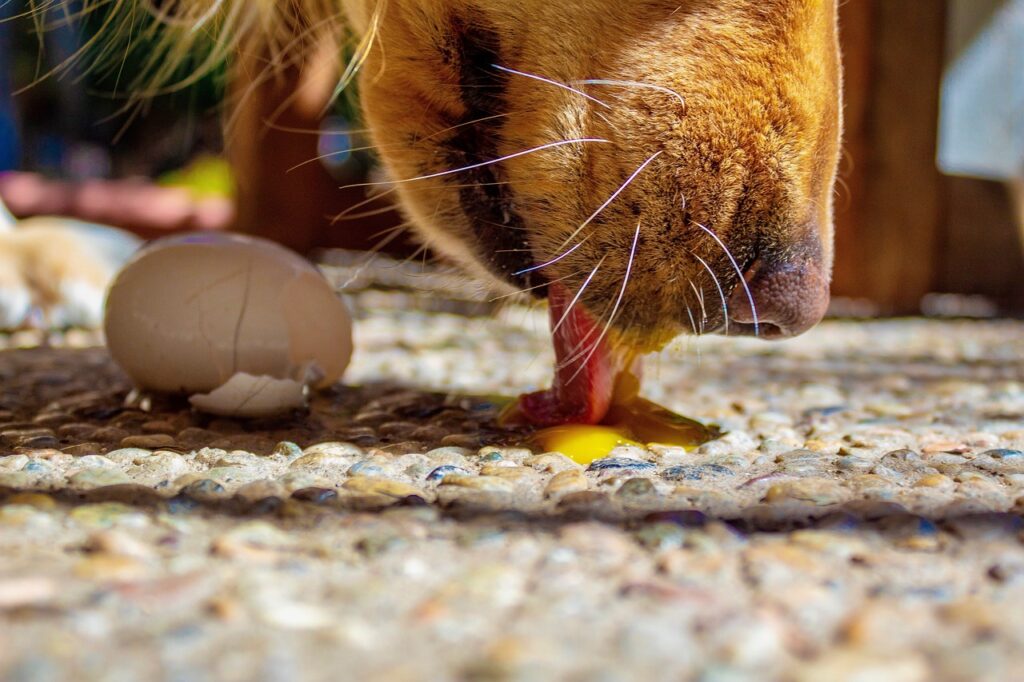
Golden Retrievers are energetic and friendly dogs known for their love of food. However, simply feeding them any dog food won’t suffice. They require a balanced diet to support their growth, maintain a healthy weight, and prevent common health issues. A well-balanced diet for Golden Retrievers should contain the following key components:
1. High-Quality Protein
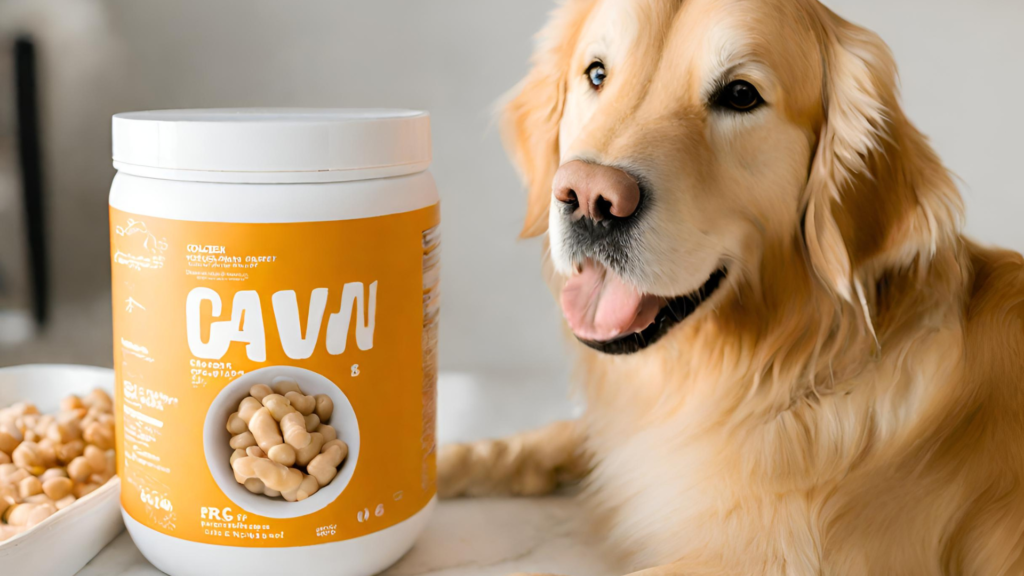
Golden Retrievers are active dogs with a muscular build, so they require a diet rich in high-quality protein sources. Look for dog foods that list meat, fish, or poultry as the primary ingredient. These proteins provide essential amino acids, which are the building blocks for a healthy body.
2. Healthy Fats
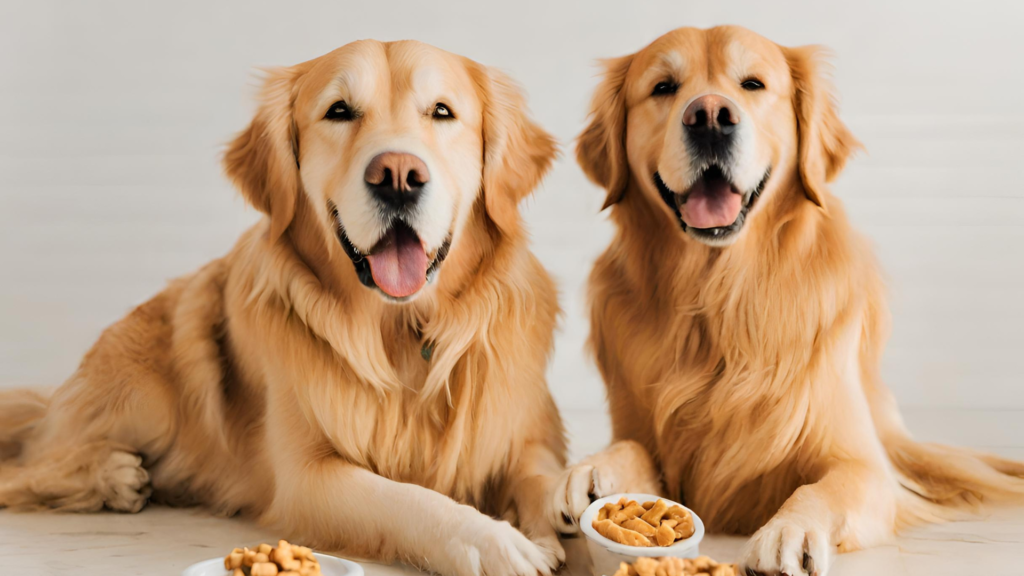
Fats are a vital energy source for dogs and play a crucial role in promoting proper brain function and a healthy coat. Opt for dog food that includes healthy fats such as Omega-3 and Omega-6 fatty acids, which can be found in fish oil, flaxseed, or chicken fat.
3. Complex Carbohydrates
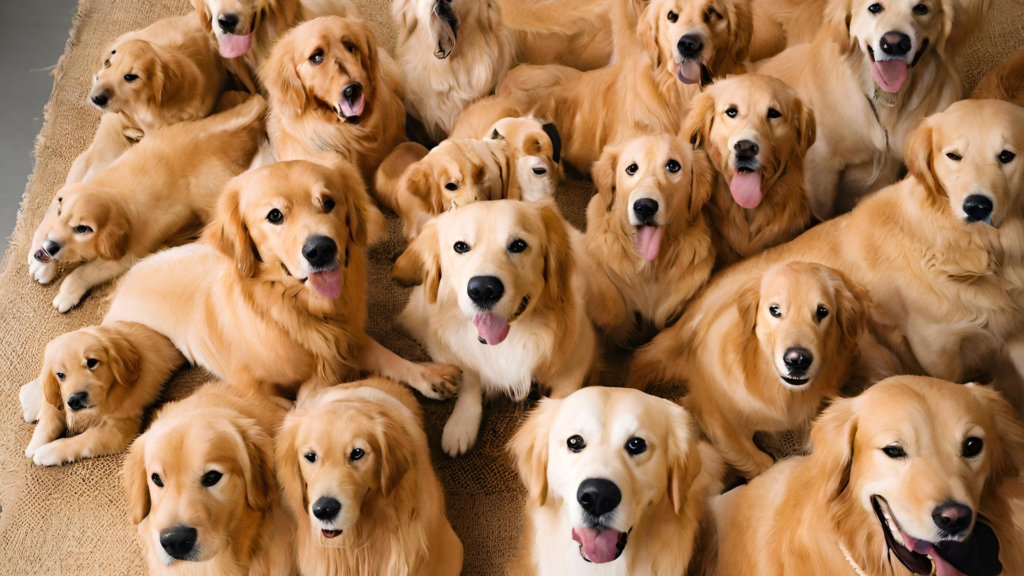
While dogs are primarily carnivorous, they still require a moderate amount of carbohydrates for energy. Choose dog foods that contain whole grains like brown rice or oatmeal, which provide a slow-release source of energy and fiber.
4. Essential Vitamins and Minerals
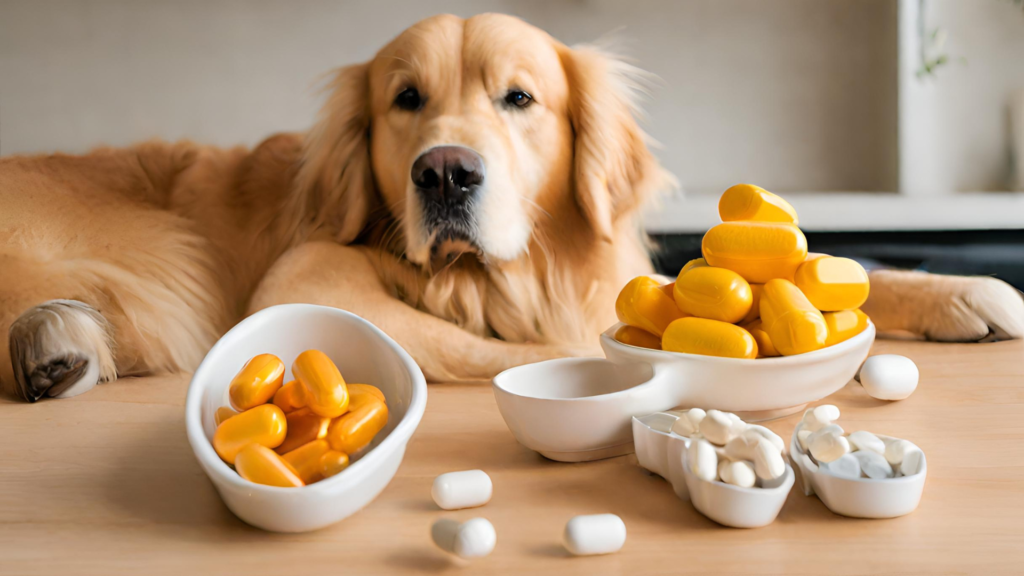
To support your Golden Retriever’s overall health, ensure their diet includes a wide range of essential vitamins and minerals. Look for dog foods with added fruits, vegetables, and supplements such as vitamin E, vitamin C, and selenium. These nutrients support their immune system, and joint health, and provide antioxidants.
5. Plenty of Water
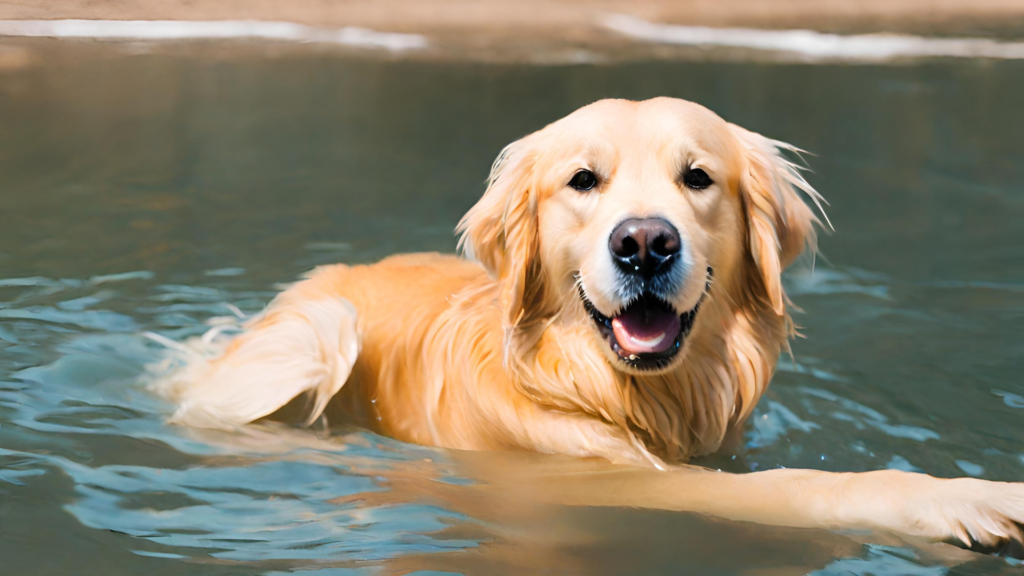
Water is the elixir of life, and Golden Retrievers should always have access to fresh, clean drinking water. Hydration helps regulate their body temperature, aids digestion, and keeps their joints and organs functioning optimally. Remember to change the water in their bowl regularly and monitor their intake.
Feeding Guidelines

Now that we understand the essential components of a Golden Retriever’s diet, let’s delve into some specific feeding guidelines to ensure they receive optimal nutrition:
1. Age-Appropriate Food
Golden Retrievers have different nutritional requirements at various stages of their lives. Puppies require specially formulated puppy food with higher protein and calorie content to support their growth. As they mature, gradually transition them to adult dog food, which provides a more balanced combination of nutrients.
2. Portion Control
Maintaining a healthy weight is crucial for your Golden Retriever’s overall well-being. Follow the recommended feeding guidelines provided on the dog food packaging. Adjust the portion sizes according to your dog’s activity level, metabolism, and age to prevent weight gain or loss. Regular vet check-ups can help ensure you are feeding the right amount.
3. Feeding Schedule
Establishing a consistent feeding schedule is vital for your Golden Retriever’s digestive system. Most adult Golden Retrievers thrive on two meals a day, while puppies require more frequent feeding. Avoid leaving food out all day, as it can lead to overeating and weight issues. Stick to the designated meal times, and if necessary, use puzzle toys or slow-feeding bowls to prevent gulping down food too quickly.
4. Treats and Supplements
While treats can be an excellent tool for training and bonding, it’s crucial not to overdo it. Treats should only account for a small portion of your Golden Retriever’s overall daily caloric intake. Opt for healthy, natural treats, or consider using small pieces of their regular food as rewards. Additionally, consult with your veterinarian before introducing any supplements to ensure they are necessary and safe for your furry friend.
Conclusion
Providing your Golden Retriever with proper nutrition is a fundamental part of being a responsible pet owner. Remember to choose high-quality dog food that incorporates a balanced mix of protein, healthy fats, carbohydrates, essential vitamins, and minerals. Follow feeding guidelines based on your dog’s age, adjust portion sizes accordingly, and establish a consistent feeding schedule. Remember, a well-fed and healthy Golden Retriever will reward you with years of love, loyalty, and happiness!
Lola is a passionate blogger, weaving heartfelt stories that capture the enchantment of French Bulldogs, the warmth of Golden Retrievers, and the exuberance of Labrador Retrievers, showcasing the profound emotional bonds formed with these beloved canine companions.










